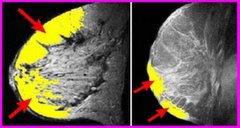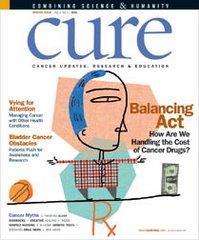M. D. Anderson Establishes Clinic, Research Program for Inflammatory Breast Cancer
First center in world dedicated to treatment, research of the rare disease
M. D. Anderson News Release 10/20/06
In an effort to best understand the complexities of a very rare, aggressive and often lethal form of breast cancer, and to improve the outcome of women everywhere with the disease, The University of Texas M. D. Anderson Cancer has announced today (Oct. 20) the first clinic in the world dedicated to the treatment and research of inflammatory breast cancer (IBC).
Under the co-direction of Massimo Cristofanilli, M.D., associate professor in the Department of Breast Medical Oncology, and Thomas Buchholz, M.D., professor in the Department of Radiation Oncology, the clinic will be housed in M. D. Anderson's Nellie B. Connally Breast Center. The clinic will open to patients Oct. 25......
To read the entire press release follow the link to
M. D. Anderson.








